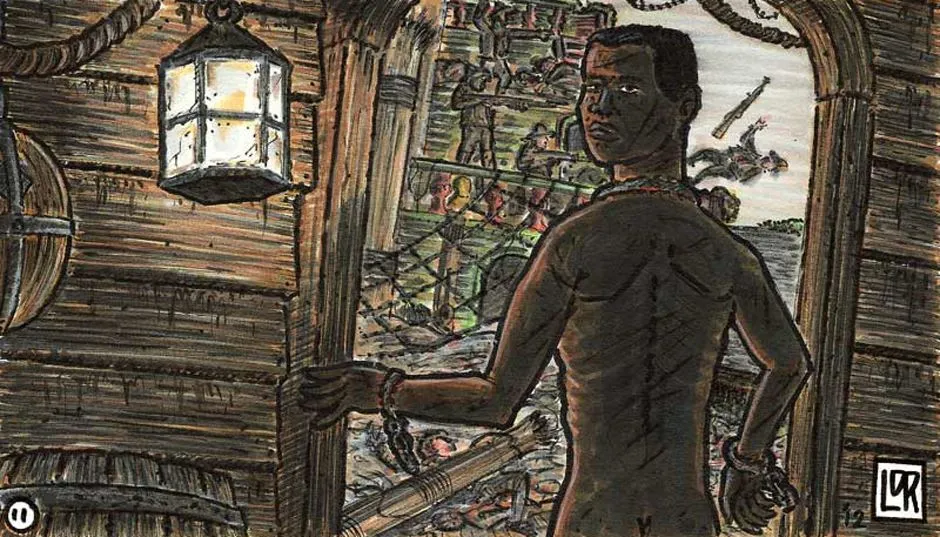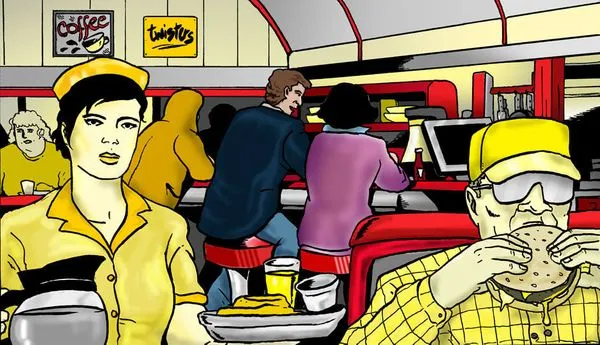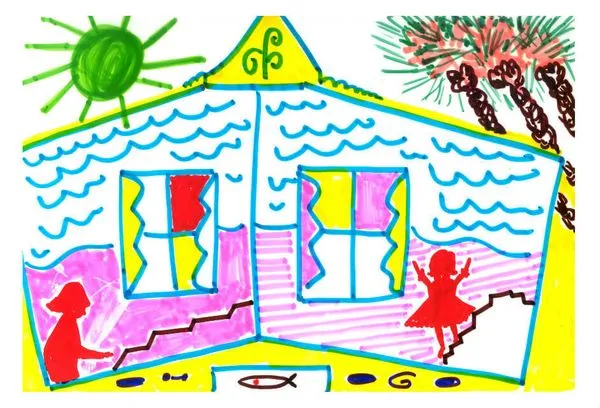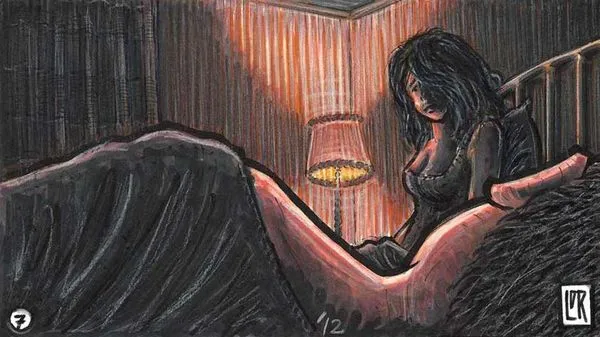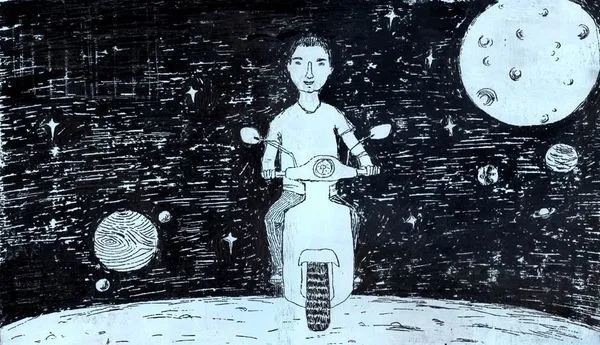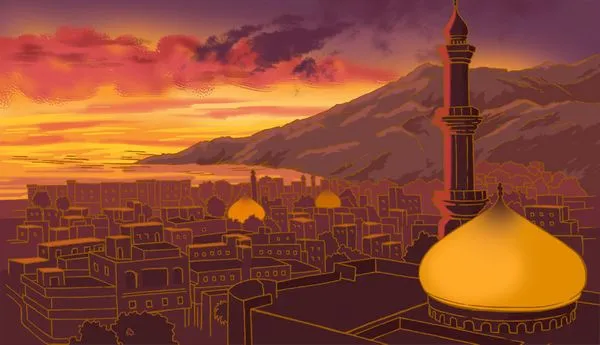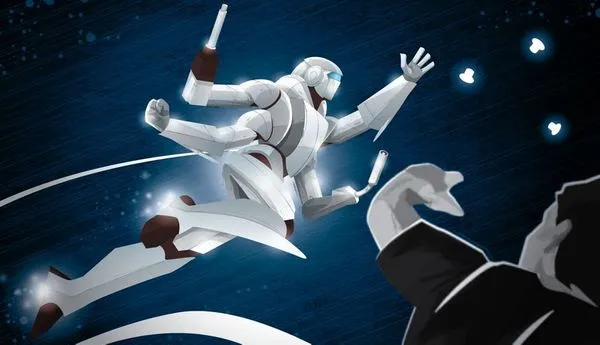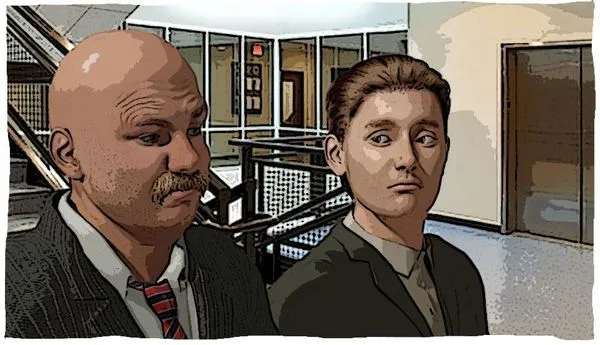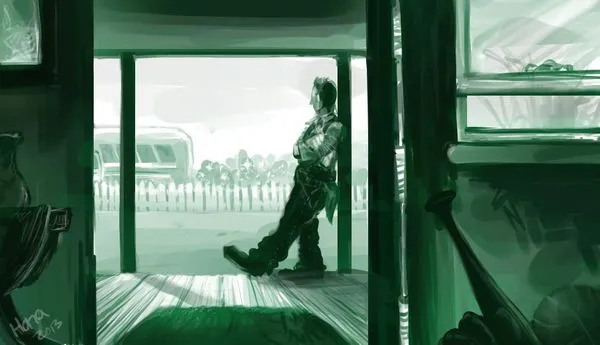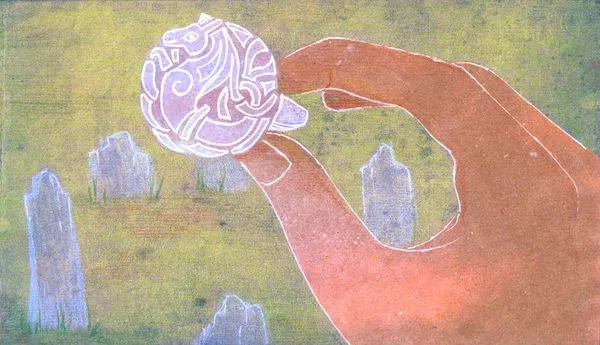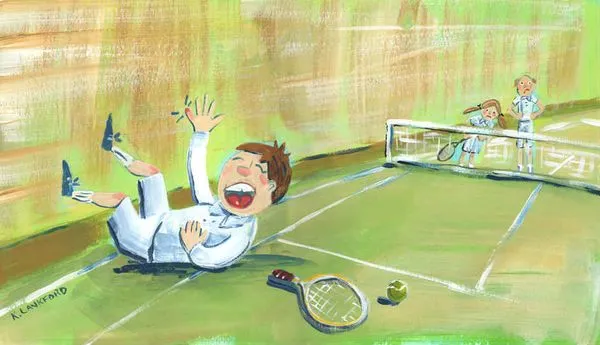Tsaonetsi
Martin Hooijmans | Lars de Ruyter
Published on 2012-03-18
Tsaonetsi closed his eyes against the hail of splinters, lest he went blind. Furthermore, he hadn’t seen daylight for weeks, and the fresh gaping hole in the ship’s hull provided it in plentiful supply. He felt a wet, sticky substance cover him all over, and a moment later the irony smell of blood filled up his nostrils. When he chanced a quick glance he saw the lunatic he shared his little cell with had been shattered by a heavy, metal ball. It only occurred to him at that point that the soul-tearing laughter from his cellmate had been replaced by the sounds of utter confusion. The air was filled with thunder, mixed with the creaking and shattering of wood and the screams of men, some shouting inaudible commands, others roaring in agony.
A sharp whistling sound triggered Tsaonetsi’s reflexes once more and he ducked as much as the chain his hands were attached to allowed. The impact was right where his head had been a fraction of a second ago. Together with the wall, a part of the ceiling collapsed, dropping one of the white-skinned captors onto the remains of Tsaonetsi’s cellmate. Covered in blood and guts, he attempted to crawl to his feet, then slipped and fell down again. What he looked up to then was the black, naked, bulky, bloody shape of Tsaonetsi towering over him. The prisoner’s bonds had been cut to the extent that he was now wielding a chain with a large chunk of wood attached to the far end, an intimidating weapon in the right hands. Tsaonetsi’s were the right hands. He shouted a mighty war cry, baring his perfectly white teeth and swung the wood into the direction of the white man’s doom, which came swiftly.
Tsaonetsi breathed heavily. He had drawn human blood for the first time in his life. Back home he was known as a great hunter, but he was never a warrior. Now that he had claimed his first victim, however, he filled up with a battle rage that only vengeance could trigger. He would obliterate his foes, who had come into his tribe carrying fire and swords, who had taken all their belongings, who had raped their women and then left them for dead with the children, who had imprisoned all men they had not killed. Tsaonetsi had nothing anymore, which meant that he had nothing left to lose. The end had come in the shape of chaos, and the enraged hunter would do everything in his power to add whatever he could to that before it would consume him as well.
As he crawled onto the ship’s deck, he saw the true extent of the battle unravel before his eyes. The mast lay in pieces on the deck, men crushed underneath them. Some men were missing limbs and, through their pain and shock, completely panic-struck. Others were fighting their own war with the sail that had somehow entangled itself around them. Its former spotless white was now ripped and blotched with dark red coloring. The biggest group was nervously huddled together, their sables and guns drawn, waiting for the first opponents to enter via the long wooden board that was about to connect both battling ships. A final massive roar of thunder was followed by a sighing, dying cry from the wood. Everything collapsed. Tsaonetsi found himself in free-fall, his senses numbed by the force that carried him towards the cold waters. His final thought was of his wife and son, who would surely be clinging on to life now, their main providers gone. How he longed to see them again.
When Tsaonetsi awoke once more, the first thing he noticed was the utter silence. Then he felt the sand on his sore body. He sat up with a large groan — everything ached — and looked around him. He was still stuck with his chains, but he was all by himself on a beautiful, pristine white beach. He did not recognize the place, but he recognized the smell. He may have been a long way from his family, but the smell left no doubt. He was home.
The hunter closed his eyes, inhaled deeply and thanked the gods for their mercy. Then he got up and walked. He had a long way to go.

